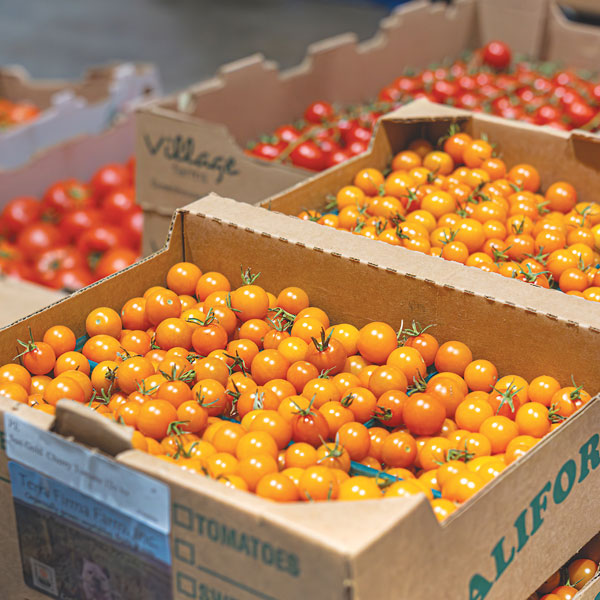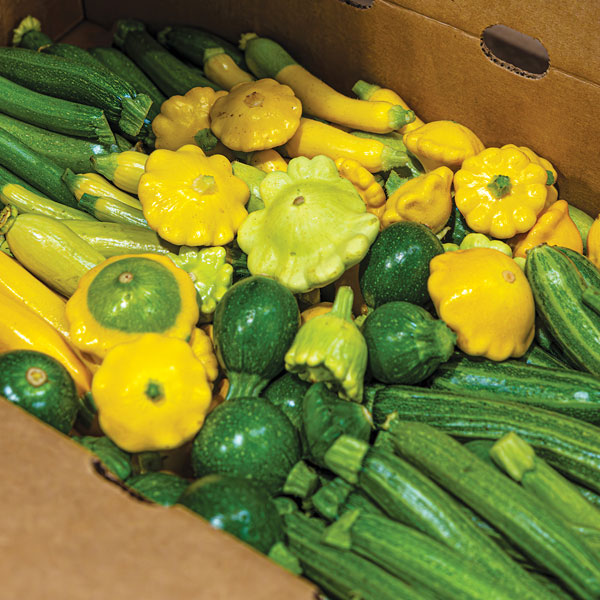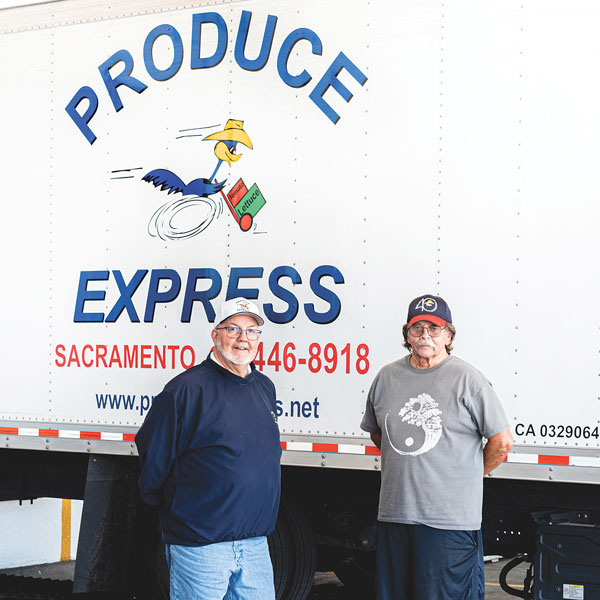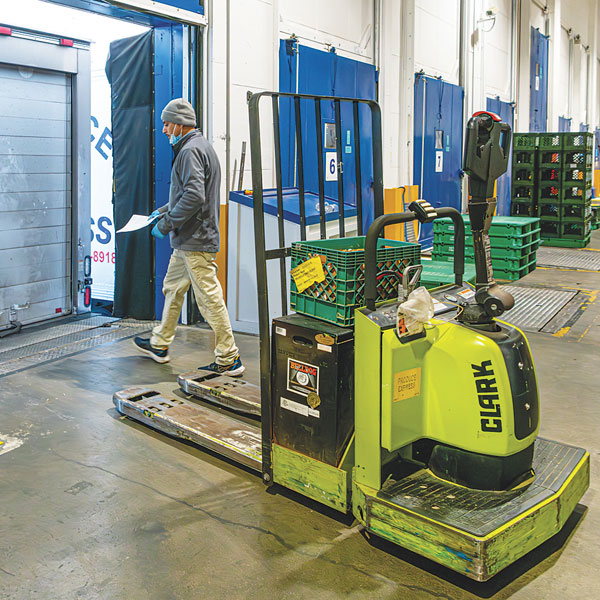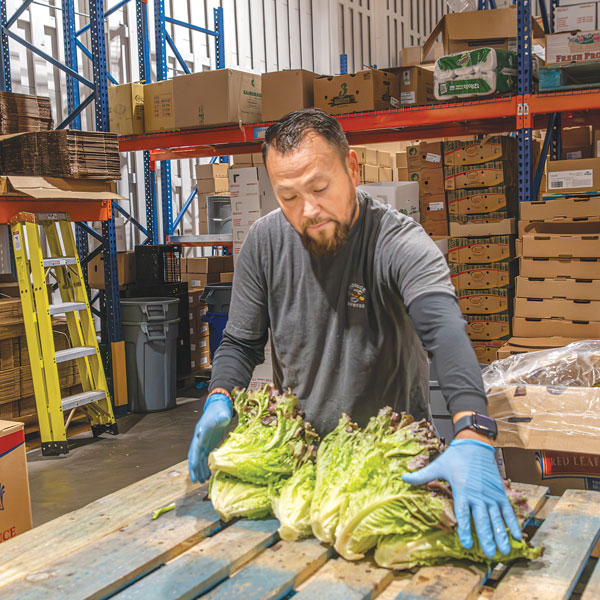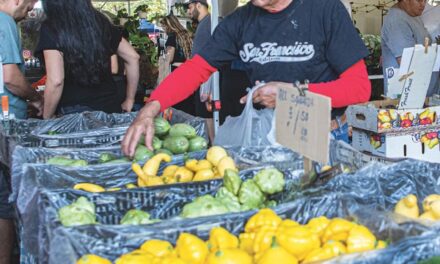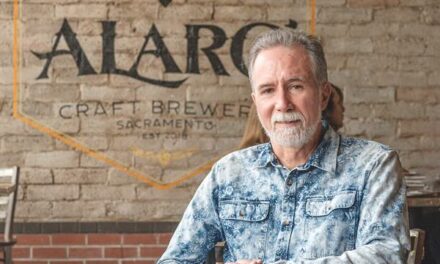Only The Best
Farm to fork started with a box of yellow tomatoes
By Gabrielle Myers
August 2025
The farm-to-fork movement is more than farmers and chefs. Without a produce company to connect farms to kitchens, the region’s unique food system quickly unravels.
While some restaurants deal directly with farmers, in my 15 years in the industry, every kitchen where I worked relied on distributors. Most restaurants find it impossible to operate without them.
This is where Jim Mills came in. Working with Produce Express, he created a bridge between local farmers, food artisans and restaurants. He transformed the local dining scene.
Mills entered the hospitality industry as a bartender for Randy Paragary after graduating from Sacramento State. As Paragary opened more restaurants, Mills became a general manager and chef.
Along the way, Mills recognized the potential for farm to fork—ideal growing conditions for vegetables, fruits and herbs.
Mills and Paragary Executive Chef Kurt Spataro planted a garden at 28th and N streets, across from the group’s namesake restaurant. They grew basil and other herbs, squash and tomatoes.
After 25 years with Paragary, Mills became a salesman for Produce Express. The career move would last 18 years and inspire the farm-to-fork movement.
“I was able to create accounts because I had been a chef and knew the chefs that were in place at the moment,” Mills says. “As soon as I went to work at Produce Express, I immediately launched on this mission to get more local produce into local restaurants. I was able to put all those farmers into one place and allow the restaurants to order from one place.”
Mills had a blueprint, thanks to Alice Waters, founder of Berkeley’s Chez Panisse. “Alice brought it in direct from the farmers,” he says. “I brought it via a produce distribution company.”
Produce Express was a family business run by Jim and Barbara Boyce. Mills and the family began with two local farmers—Ray Yeung of Yeung Farms Specialty Produce and Suzanne Peabody Ashworth of Del Rio Botanical—to fill the needs of local chefs.
“Yeung happened to walk into our warehouse one day holding a box full of yellow tomatoes,” says J.B. Boyce, the founder’s son. “He was a Roma tomato grower for Campbell Soup and other companies and just mass produced tomatoes, the tomatoes you see in trucks going down the highway that bounce off and roll to the side of the highway.
“He got seedlings for a patch of Carolina Gold heirloom tomatoes and happened to walk up on our dock and said, ‘Hey, I got a whole field of these, and I have no idea what to do with them.’ I told him, ‘Sir, you can pack them in 10-pound boxes and bring them to me. I’ll be happy to pay you for them.’
“We developed the first relationship with Uncle Ray, as we call him, and that was our first true farm-to-fork farm.”
One day when Mills was driving back from Yeung’s farm, he passed Del Rio Botanical. The farmer, Peabody Ashworth, “was a seed collector who had several acres right along the Sacramento River,” Boyce recalls. “She grew different vegetables and herbs and spices just to collect the seeds, and she would sell those seeds worldwide. She was an instructor at UC Davis and had a network of customers buying her seeds.
“In her living room, she literally had a card catalog like you see in the library full of seeds from plants and herbs from all over the world, and because of the great Mediterranean-like ecosystem right there on the river, she could grow just about anything anybody in the world could grow, including avocados, bananas.”
Mills worked with Peabody Ashworth to grow whatever the produce company needed for chefs at Mulvaney’s, Waterboy, the Selland family and others.
Peabody Ashworth died in 2021, but Mills and the Produce Express team created a circular economy where growers and food artisans sell their products locally and earn sustainable incomes.
Local chefs capitalize on the bounty and biodiversity. They create dining opportunities that distinguish Sacramento as one of the most progressive, dynamic restaurants scenes in the nation.
Mills retired in 2017, but his passion for this unique growing region and dining scene is undiminished. Without prompting, he names 20 restaurants he considers distinctive and representative of the vibrant food culture—a movement he helped create.
Gabrielle Myers can be reached at gabriellemyers11@gmail.com. Her book of poetry, “Break Self: Feed,” is available for $22.99 from fishinglinepress.com. Her new book, “Points in the Network,” is on presale until Aug. 22 at fishinglinepress.com with a mid-October publication date. Follow us on Facebook and Instagram: @insidesacramento.




